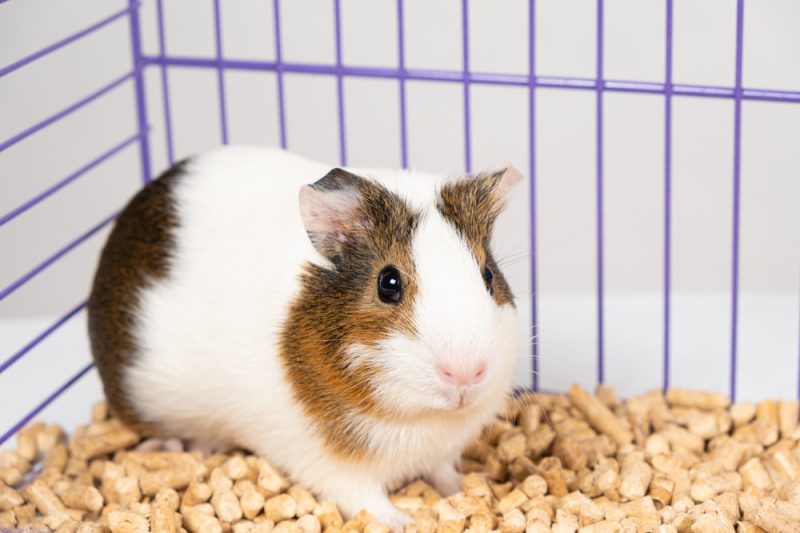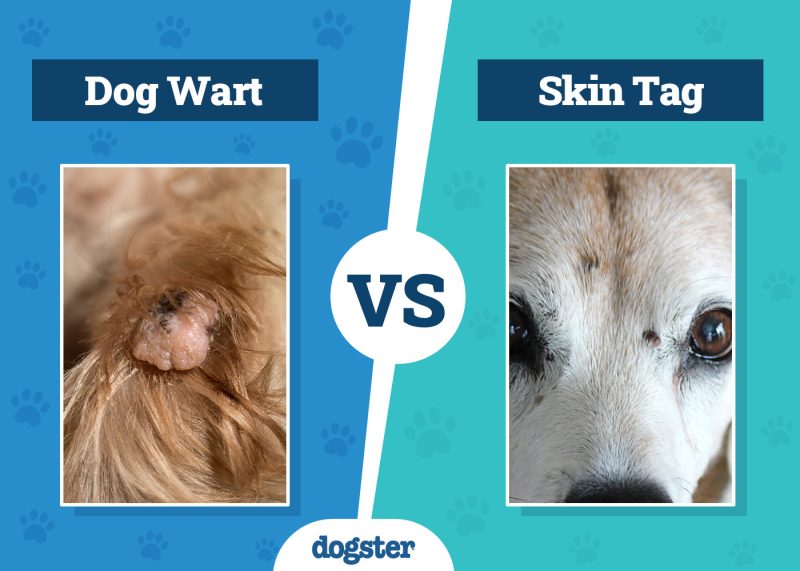In this article
Seizures are really scary—both for your pet and for yourself—and they can often signal a larger underlying problem. Because seizures can have a number of different causes, they can be difficult to predict or prevent, and any dog of any age, breed, or sex can be affected by them.
There is a lack of consensus when it comes to ranking dog breeds on their likelihood of having epilepsy, with some sources placing the Pug, Boxer, and Basset Hound highest on the list, and others listing the Labrador, Golden Retriever, Border Collie, and German Shorthaired Pointer at the top, although there is likely to be some geographic influence on this data, with the latter grouping more reflective of UK statistics.
With all this in mind, seizures and epilepsy are something any Goldendoodle owner should be mindful of, but we would not expect them to be at a high risk, particularly in the US. However, as something that can happen to any dog, seizures are something that all dog owners should be aware of, including what to do if your dog has one.

What Are Seizures?
Seizures occur when there is abnormal electrical energy between the brain cells, and depending on the underlying cause, a seizure could last seconds, minutes, or even longer. They can be an isolated episode, happen in groups, or become a regular occurrence.
Most of the time, we are talking about generalized or grand mal seizures, which typically involve:
- Muscle trembling or twitching
- Vocalizing (barking, yelping, crying)
- Collapse with loss of consciousness or responsiveness
- Loss of control over bladder/bowels
- Paddling of the limbs
- Frothing at the mouth, chomping of the jaw
There are also focal and absence seizures, though these are uncommon in dogs. Seizures can occur as a one-off event, become a regular occurrence (as with epilepsy), or come in clusters.
As mentioned earlier, epilepsy is the most common cause of seizures in dogs, but did you know that epilepsy is not so much a diagnosis but a lack of one? When any and all other known causes of seizures have been ruled out, a seizure disorder is classified as epilepsy, but we still don’t understand why these seizures happen.
Other causes of seizures include:
- Low blood sugar (hypoglycemia)
- Brain tumors
- Toxins (including drugs)
- Metabolic disorders (e.g., liver or kidney disease)
- Cardiac disease
- Inflammation of the brain tissue or fluid
- Infection
- Fever
- Heat stroke

How Common Are Seizures in Goldendoodles?
As a cross between a Golden Retriever and a Poodle, the Goldendoodle isn’t an officially recognized breed, so there is little in the way of reliable statistical data about the prevalence of seizures for them. However, as the Golden Retriever may have an increased risk of epilepsy and also a higher incidence of brain tumors, the Goldendoodle’s risk may be somewhat higher than in other breeds. Being crossed with the Poodle, which is not a high-risk breed for seizures, will likely reduce those chances further.
From the Standard Poodle side of their genetics, the Goldendoodle can inherit a condition called neonatal encephalopathy, a fatal disease that causes a failure to thrive and seizures in affected puppies. Most die by the age of 7 weeks, so this is not a condition that many owners will see. This is a recessive condition, and genetic testing should be undertaken by breeders of Poodles and Goldendoodles to prevent these genes from being passed on to future generations.
Overall, the Goldendoodle is not considered to be at high risk for seizures, but it is still something to be mindful of.
Seek veterinary advice if you’re concerned about your pet’s well-being.
If you need to speak with a vet but can't get to one, head over to PangoVet. It's our online service where you can talk to a vet online and get the advice you need for your dog — all at an affordable price!
What to Do if Your Dog Has a Seizure
Witnessing a seizure can be stressful and upsetting, and it’s really easy to become panicked, so it’s good to have an idea of what to do.
If your dog is having a seizure, the first thing you should do is make sure both of you are safe. Be aware that a dog can become distressed and aggressive after a seizure, and even the most placid dog may bite. Make sure there is nothing nearby that could injure your dog, and provide a buffer of pillows or blankets if needed. If you are indoors, close any curtains and turn down the lights. If conditions are warm and your dog is at risk of overheating, place a cold, damp towel over their body.
Once you are satisfied that your dog is safe from immediate harm, phone your vet for advice. Depending on the length, severity, and nature of the seizure, they may recommend monitoring your dog at home or bringing them in for examination or treatment.
If you can, take a video to show your vet, and try to gather as much information as possible, including:
- How long did the seizure last?
- What was your dog doing immediately before the seizure, as well as earlier in the day?
- Have they been unwell or behaving differently?
- Have they had any new medications recently?
- Is there any chance they could have ingested or been in contact with something toxic?
- How long did it take for them to be back to normal once the seizure finished?

My Goldendoodle Had a Seizure — What’s Next?
There are some cases where a seizure may occur as a single, isolated event. It is common for your vet to recommend a “wait and see” approach, unless your dog is showing other signs of illness or has been exposed to a toxin.
If your dog has additional clinical signs, or if they suffer more seizures, there are several tests that are needed to reach a diagnosis, including:
- Neurological examination to look for signs of central nervous system disease
- Blood tests to assess organ function and look for certain types of infection
- CT scan to look for masses or inflammation in the brain
- Cerebrospinal fluid (CSF) analysis to screen for infection and inflammation

Final Thoughts
Seizures are caused by a number of different diseases and conditions, and all dogs have the potential to be affected. The Golden Retriever has been found to have a higher incidence of brain tumors and epilepsy than some other breeds, but there is very little reliable evidence surrounding the incidence in Goldendoodles. However, as a crossbreed, the dilution of their genetics should reduce their risks.
We would not consider the Goldendoodle to be commonly affected by seizures, but it is always sensible, when possible, to find out as much information as you can about the genetic history of your dog.
Hopefully, you’re feeling more confident that you’ll know what to do if your dog does have a seizure, but we also hope that it’s knowledge you’ll never need to use!
Featured Image Credit: Kelsey Neukum, Shutterstock
























2 Responses
I’ve experienced 2 seizures so far in our 22 month old golden female. She’s spayed. I felt so helpless and held her, calmed her. She struggled coming up a few steps then tried jumping on bed and it sounded like she was on ice scratching. No tail wagging. Stare, confused. Broke my heart. Lasted about 5-6 minutes then slowly calmed to steady calm. About 1-2 hrs later back playing slightly. Our bernie, her best friend, was very concerned also
Hi Dave,
I’m so sorry you and your girl are going through this, watching a seizure is incredibly frightening, and the confusion afterward can be just as hard to see. What you describe, the staring, scratching like she’s on ice, trouble with steps, and the long period of disorientation, all fits with the normal post-ictal phase after a seizure.
Because she’s had two seizures before age two, it’s important to have your vet evaluate her soon. They may run bloodwork, a neuro exam, and decide whether preventive medication is needed if the episodes become more frequent. Keeping notes on each seizure – what happened, how long it lasted, and how she acted after — can really help your vet pinpoint what’s going on.
Your calm presence truly does help her, and it’s very normal for other pets to act concerned afterward. If she has another seizure within 24 hours, one lasting over 3–5 minutes, or a cluster of seizures, she should be seen urgently.
Thanks for your comment and best of luck with your lovely pup.